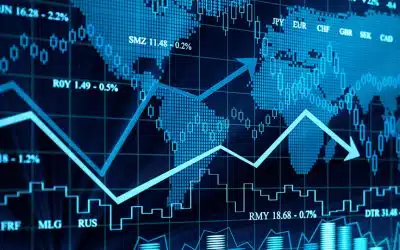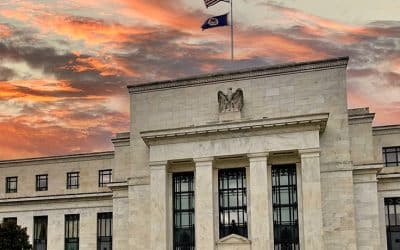“We’re expecting swings in the first few months of 2022, with high levels of volatility”

Redacción Mapfre
Some investors are already calling an end to the year. In recent days, and as a consequence of the new Omicron variant, there have been some wild swings on the stock market and, according to Alberto Matellán, MAPFRE Inversión's chief economist, “these will continue during the first few months of next year”. "We’re looking ahead to three or four months of volatility," he adds. For this reason, conservative investors, such as MAPFRE, "must adopt a wait-and-see position until the first macroeconomic figures and business results are published in the first quarter of next year.”
Despite high uncertainty, some European indices remain near historic highs, as is the case on the other side of the Atlantic, and questions are being asked about possible overvaluations of the markets. Matellán explains that it depends on how we look at it: “This has been an unprecedented year of post-pandemic recovery and investors have priced that into the prices they are willing to pay. If we look at historical figures, the markets are expensive, but I don't think it can be correctly compared on that basis: it’s been a year of reopening after the pandemic and a lot of money has continued to be injected into the economy."
In addition to the pandemic, high inflation is already putting pressure on central banks. The Federal Reserve, for example, has already modified its language, with Jerome Powell indicating that it will accelerate stimulus withdrawal. For MAPFRE Inversión's chief economist, this is a healthy message. "Inflation is higher than it seemed, and there are also internal pressures at work in the US. It’s not necessary to pump in more money, but it’s not yet clear if we can combat this through rate hikes. It’s possible that some people have been surprised, but this is what they have to do, and the market has taken it in its stride.”
In Europe, the situation is somewhat different. The Consumer Price Index of the euro area has also hit 30-year maximums, but Matellán doesn’t see internal pressures or a possible inflationary spiral that is showing its head in the US. “In Europe, the inflation rise is down to external shocks, so a significant change in ECB policy isn’t justified. We’ll see what the message is, because maybe the Fed will step in somewhat, but beyond that, nothing else is justified," he adds.
The OECD had lagged behind on macroeconomic forecasts to a certain degree. However, it has announced a strong cut of more than two points in the Spain scenario, to 4.5%. Matellán believes that this is partly due to technical issues, recalling that the INE, Spain’s National Institute of Statistics, had already pronounced a strong reduction for these same reasons. Noting the slowdown evident, not just in Spain but also worldwide, Matellán reflected that "it means returning to more normal, more reasonable rates."



